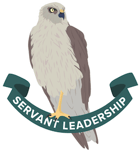|
Boost values in te reo
We recently got Boost’s values translated into te reo.
Because we’re often working with and for Māori, we wanted to be able to talk about Boost in ways that resonate with tangata whenua. We came up with Boost’s values by looking at how we actually work, not how we want to work. This means they give people a pretty good idea of how we roll. (You can check out our Core values case study to learn how and why we’ve spelt out our values.)
One benefit of getting these translations is the way it broadens our understanding of te ao Māori. Our translator Vini Olsen-Reeder has also explained the background behind his translations, which helps set our values in a wider cultural context.
Sadly Vini’s not taking on more translation work but, if you’re looking at getting reo translations done, you can find translators through the translator's register that Te Taura Whiri i te Reo Māori (Māori Language Commission) provide.
Here is an explanation of each Boost value, its new translation and Vini’s commentary on how he came up with the reo version:

Courage | Te hopo whitia
We have considered opinions but hold them lightly. We are at our best when we embrace constructive conflict and commit to being authentic and vulnerable. Feedback is a gift to give and receive, we lean into difficult conversations. Be brave and give it a go!
Commentary:
Derived from a proverb (‘e tū, whitia te hopo’). A ‘hopo’ is a barrier, or fear. ‘Whitia’ is the objective to cross that barrier, or overcome that fear. In this context, the hopo refers to conflict, feedback or criticism Boost aims to welcome and acknowledge, rather than dodge or parry away from.

Responsibility | Haepapatanga
We have a responsibility to have an economically successful organisation to ensure stability and opportunities for team members, stakeholders and clients. We take responsibility for our customers' outcomes. We are in charge of our own learning and sharing knowledge with the wider team.
Commentary:
There is no Māori word for responsibility as such. Instead, we consider responsibilities as things that must be carried at all times. For that reason, most people translate responsibility as literal things that are carried. In modern times, the word haepapa is used to add another layer of meaning, as a burden that is carried for ethical reasons. Hence it makes sense to use here.
The suffix -tanga is added here only to turn haepapa into a nominal noun. In this context, the English word responsibility is a nominal noun, so the suffix equates the two. It is also added to Manaaki for the fourth value (already translated), so it makes sense to keep that consistency.

Servant leadership | Rangatiratanga manukura
We are all leaders and at Boost all leaders serve. We are focussed on what we can do for others and developing our teams. We balance the needs of the individual with those of the organisation. We listen. We coach, we are humble and trusting. We value service not status.
Commentary:
This was a really interesting word to translate, because servant words in Māori aren’t all that kind. They’re mostly debasing. Therefore, I’ve departed from those entirely.
Rangatiratanga is a common word for leadership. I’ve used this here, and the nominal suffix -tanga is kept for the same reasons as haepapatanga (above).
For the word servant, I’ve opted for a metaphorical translation, manukura. In birdflight, the manukura is designated as the leading bird of the V-shape formation flocks take. That bird’s sole role is to reduce the wind impact taken on by other birds, to keep their energy levels up. After a time, the manukura will fall to the back (with the least wind resistance) and another will take its place. Birds that aren’t as strong in flight will stay in the middle and hover around there, as needed. In this manner, the birds collectively share the burden, and give rest where it’s needed. This seems to me to be a good translation for the idea that all leaders serve, and all are leaders.
Our last value needed no translation:

Manaakitanga
We make everyone feel welcome. We create an environment where everyone can be successful; we nurture relationships, raise others up and work to create and maintain safe spaces.
The definition of Manaakitanga in the Te Aka Māori dictionary is: hospitality, kindness, generosity, support — the process of showing respect, generosity and care for others.
|